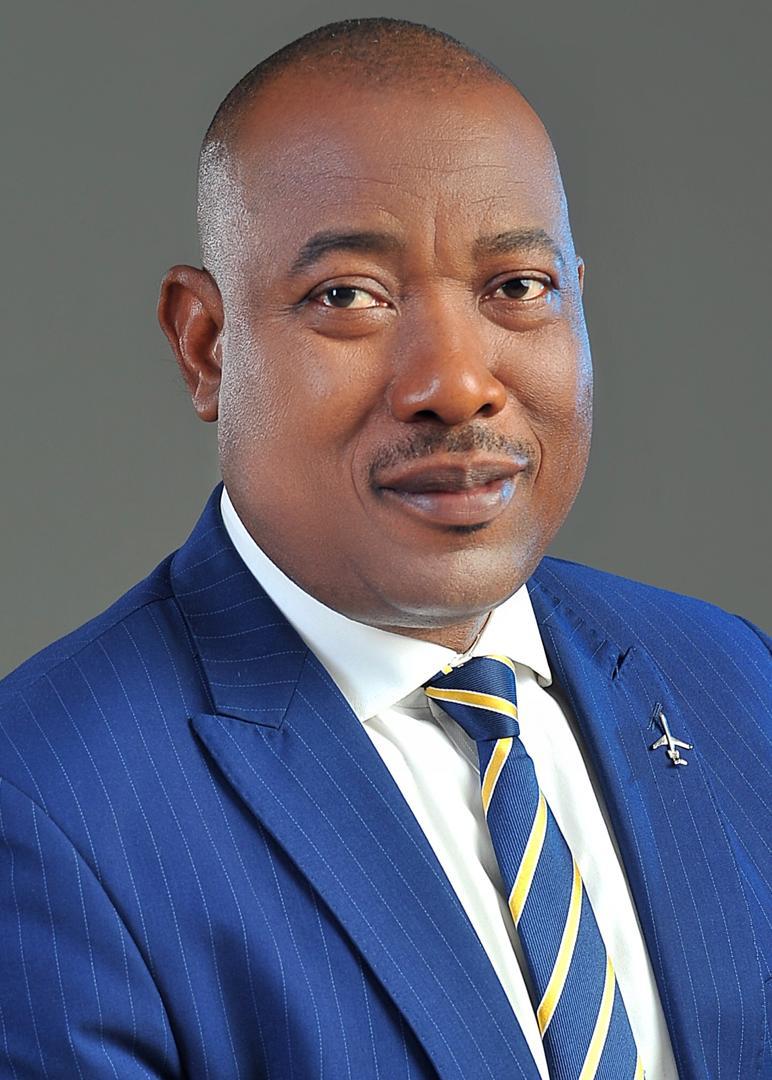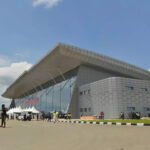
The cost of aircraft maintenance for Nigerian airlines overseas has become very expensive because of the drop in the value of the naira.
According to industry experts, Nigerian operators would save about 35 per cent of the cost of aircraft maintenance, put at over $2.5 billion annually if the facility were located in the country.
Since five years ago some industry stakeholders have been canvassing for the establishment of free zone at the Murtala Muhammed International Airport (MMIA), Lagos that could house maintenance, repair and overhaul (MRO) facility, aircraft spare facility and other aviation related services.
Aviation investment expert and Managing Partner, TMSS Logistics, Alhaji Nuhu Adam, told THISDAY that the need to have free zone for such facilities at the Lagos airport was crucial if domestic airlines must grow and if Nigeria must benefit from the air transport sector.
Adam, who was former General Manager, Business Development, Federal Airports Authority of Nigeria (FAAN), said the choice of Lagos was important because presently, the state ranks as the commercial capital of Nigeria and the nerve centre for multidimensional economic activities in the country. He noted that the state is arguably the most industrialised and developed city in the country with the highest individual per capita income.
“The neighboring Ogun state and its host status to a multiplicity of industries constitute another reason for the establishment of the MMIA, Ikeja – Lagos Free Zone, considering that companies in these region can set up Free Zone Enterprises (FZE) arms of their organizations in order to tap from, and benefit maximally from the free zone when established.
“The neighboring nations of Benin Republic, Togo and Cameroon stand to benefit from the backward integration gains of the establishment of an aviation hub and a modern free zone at the Murtala Mohammed International Airport.
“The main objective for start-up of a modern free zone with industrial characteristics is to attract those investors who will build the industrial infrastructure for the production of goods ready for exports, and for engendering world class service delivery and fostering international best practices within the free zone and its adjoining business clusters,” Adam said.
Adam listed the benefits of the free zone to include the increase in national exports and decrease in deficit in the country’s current account, the creation of new jobs and new added value and the increase in the dynamics of economic activities and generation of new entrepreneurial opportunities.
Others include the transfer of new technologies, knowledge, skills, good organisational and managerial business practice, the reduction of any existing regional imbalance and the encouragement and advancement of Foreign Direct Investments (FDIs).
“It is our considered belief that the Murtala Mohammed International Airport (MMIA), Ikeja-Lagos Free zone, will achieve these and more when established. Possibilities and advantages available with the establishment of the Murtala Mohammed International Airport, Ikeja-Lagos Free Zone.
“We envisage that myriad of opportunities will accrue to the nation’s economy when the MMIA, Ikeja-Lagos Free zone is established and become operational. These include the following among others: the call for an aviation hub and an aviation based Free Zone in Nigeria will not only address the critical infrastructure deficit, but will curtail capital flights in the country.
“It is on record that the Nigerian airlines, the nation’s Presidential fleet, Nigerian Air Force and the Nigerian Police spend an estimated $2.5 billion annually in conducting C-checks and other levels of aircraft maintenance overseas. These services can be done by the companies that will be attracted to establish their presence within our aviation hub and the MMIA, Ikeja-Lagos Free Zone.”
Adam said establishing the MMIA, Ikeja-Lagos free zone would provide employment, grow aviation technology, which will eventually lead to manufacturing of aircraft spares.
There will also be the formation of Aircraft Maintenance Organizations (AMO) in the country, comprising of Fixed Base Operators, Maintenance Repair and Overhaul (MROs) and all those involved in the maintenance of aircrafts.
“Today, the dominant MRO players on the continent can be divided into African and non-African operators. The African MRO providers include South African Airways Technical (SAAT), Ethiopian Airlines Maintenance and Engineering, Kenya Airways Technical, Air Algerie Technics and Tunisair Technics.
“This leaves a huge market for the West and Central Africa which the MMIA, Ikeja-Lagos free zone will seek to serve with the provision of trade facilitation incentives to MROs who will establish their presence at the zone. An estimated $2.5 billion revenue is expected to be accrued annually.
“The aviation sub-sector in Nigeria had suffered because of its inability to establish a proper One Stop Shop solution in the aviation value chain. Thus, the establishment of the Murtala Mohammed International Airport, Ikeja-Lagos free zone and the aviation hub will mitigate some of the missing links and strengthen the weak supply chains that will ensure that the airline aspect of the business maintains a balance in its cost-intensity,” Adam said.
He also observed that it was logical to look at areas of synergy to grow the budding market, as domestic airlines and Nigeria would benefit immensely from the facility.






